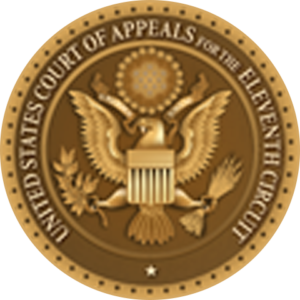Originally Published on forbes.com on February 15th, 2012
______________________________________
Phil Driscoll is an ordained minister and quite a trumpet player. He has also done time for tax evasion. Some people saw it as something of a vindication when he beat the IRS in Tax Court. I thought that his victory was a bit over the top and titled my post on it Parsonage Exclusion – Shouldn’t Enough be Enough ?.As I explain in my post, Work, Fight or Pray – Vestige of the Medieval in Our Tax Code anybody can exclude the cost of housing that is provided for the convenience of the employer, but soldiers and preachers are special. They can exclude cash payments in lieu of housing provided by the employer. The military exclusion is not really subject to abuse since it is limited in amount. There is, however, no dollar limit on the parsonage exclusion (It is limited to the fair value of the housing). Reverend Driscoll’s numbers were pretty impressive:
At issue were parsonage exclusions covering the years 1996 to 1999 totalling just over $400,000. The largest being $195,778.72 in 1999. This was not Reverend Driscoll’s entire parsonage allowance. This was the portion attributable to his second home (for parts of 1998 it was “second homes”).
The Code refers to the exclusion as the – rental allowance paid to him as part of his compensation, to the extent used by him to rent or provide a home.
The IRS argued that “a home” means “a home”, but the Tax Court ruled that the singular includes the plural, so “a home” means “a home or homes”. Coincidentally, the Freedom From Religion Foundation was fighting the whole idea of the parsonage exclusion during roughly the same period. The Reverend William Thornton, who blogs on Southern Baptist Convention issues, has a balanced view on the issue. When FRF dropped the case his post was titled “Our sacred tax loophole, the housing allowance, survives once again”. Commenting on one of my pieces on the issue, he wrote:
As a minister in a tradition where the average Senior Pastor compensation is $55k and where a substantial segment of clergy live in church-owned housing, the minister’s housing allowance provides a welcome, though modest, relief from some income taxes.
That rich ministries, religious racketeers, and greedy pastors use the housing allowance for luxurious second homes and vast mansions is troublesome.
So the Reverend Thornton may be pleased that the Eleventh Circuit has ruled that in the dated language of the parsonage exclusion the masculine “he” may include the feminine and the Christian term “minister of the gospel” may include rabbis, imams, Unitarian Universalists and even the odd trumpet player, but the singular does not include the plural.
Home” is defined as “the house and grounds with their appurtenances habitually occupied by a family: one’s principal place of residence: DOMICILE.” Webster’s Third New International Dictionary 1082 (1993). Based upon this definition, we conclude that “home” has decidedly singular connotations.
The Driscolls argue that if Congress had intended to limit the income exclusion under § 107(2) to one’s principal place of residence, it could have added language to that effect. They point to language in other provisions, like I.R.C. §§ 121, 123, that exclude from gross income gains relating to a taxpayer’s “principal residence.” However, that Congress refers to “principal residence” in these other provisions does not ineluctably lead to the conclusion that we should read “home” in § 107 to imply a plural meaning, especially when the context of the use of the word “home” does not readily support plural connotations.
My own view is that the way to clean up abuse of the parsonage exclusion is to put in a dollar limit on cash allowances. I understand why some First Amendment purists might want to eliminate it, but that is because they focus on the establishment part of the First Amendment rather than the free exercise part. Since Section 119, convenience of the employer, would apply to housing that churches required their ministers to live in, some types of polity might be advantaged over others if a cash allowance were not also allowed to be excluded. It might not be a great argument, but it is an argument. I would worry about the effect that repeal would have on small congregations and actually I am not much of a constitutional purist, but there really needs to be some limit.
You can follow me on twitter @peterreillycpa.































































































